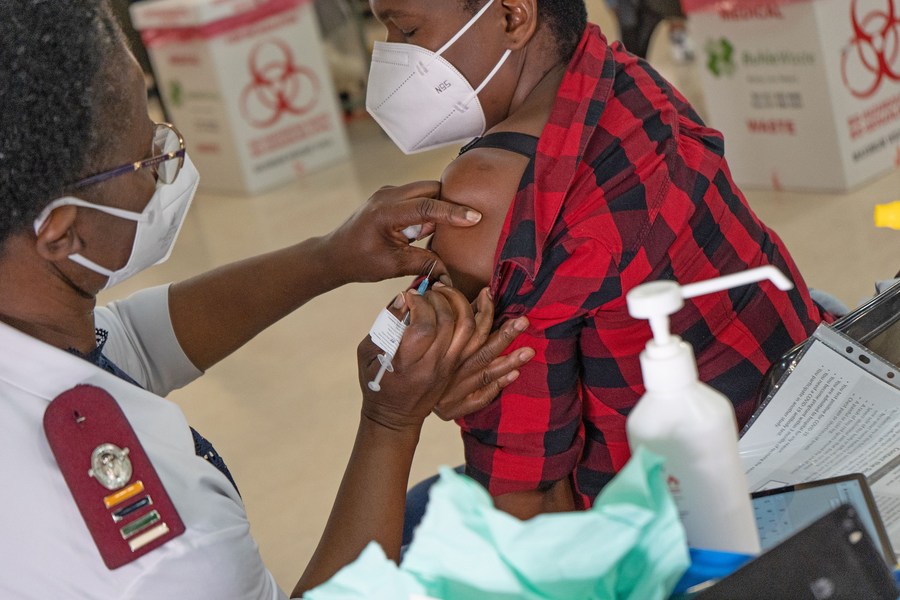B.1.617 coronavirus variant spreading in Africa


The highly contagious triple-mutant B.1.617 coronavirus variant, first detected in India in December 2020, has so far been reported in six African countries.
According to the Africa Centers for Disease Control and Prevention, the variant, which is responsible for India's devastating second wave of COVID-19, has been reported in Angola, the Democratic Republic of Congo, Kenya, Morocco, South Africa and Uganda.
John Nkengasong, director of the Africa CDC, said the health agency was putting measures in place to ensure the continent avoids a devastating wave of the variant similar to India's case.
"We'd better be over-prepared than surprised," Nkengasong said during a virtual weekly news briefing on Thursday.
The variant that has so far spread in 44 countries across the globe was first detected in Africa on April 29 in Uganda.
It was then detected in Kenya on May 5, in five cases who were Indian travelers working in the western part of the country. The total number of cases from the mutation has since risen to 20.
According to Rashid Aman, the chief administrative secretary of health, the ministry is planning to enhance its surveillance system to be able to identify the variants.
He called on the public to continue adhering to the health measures of observing social distancing, hands hygiene and wearing face masks, terming them as effective prevention measures.
On May 8 Zweli Mkhize, minister of health in South Africa, announced the country had detected four cases of B.1.617.
Two of the cases were detected in Gauteng, with the others detected in KwaZulu-Natal province.
Mkhize said all the cases were recent arrivals from India and had been isolated and managed according to national COVID-19 case management guidelines.
He added contact tracing has been performed in order to limit the spread of the variant.
"As the epidemic progresses, the detection of new variants is inevitable. The work of genomic surveillance assists us to detect the variants, understand their behavior and refine vaccines so they remain effective," Mkhize said.
The World Health Organization has classified the B.1.617 variant as a variant of global concern due to its increased transmissibility.
Several African countries have also reported cases of B.1.1.7 and B.1.351 coronavirus variants, first detected in United Kingdom and South Africa, respectively.
Angola, DR Congo, South Africa and Kenya have reported all three coronavirus variants.
As of May 10, a total of more than 38.03 million vaccine doses had been acquired by AU member states, with approximately 22.4 million doses administered.
It corresponds to a coverage rate of 1.48 percent at the continental level, with 0.40 percent of the population having received a full vaccine regimen.
Nkengasong said AU member states have so far used 58.87 percent of the available vaccine supply.
- Tianjin launches youth program to cultivate university talent for tech market
- Local farmers combat desertification in Moyu county of Xinjiang
- N China's Hohhot launches winter amusement programs to boost local economy
- Viral app bares 'safety anxiety' among solo dwellers
- Research suggests causes of moon's two different 'faces'
- AI software under lens for facilitating porn talk





































